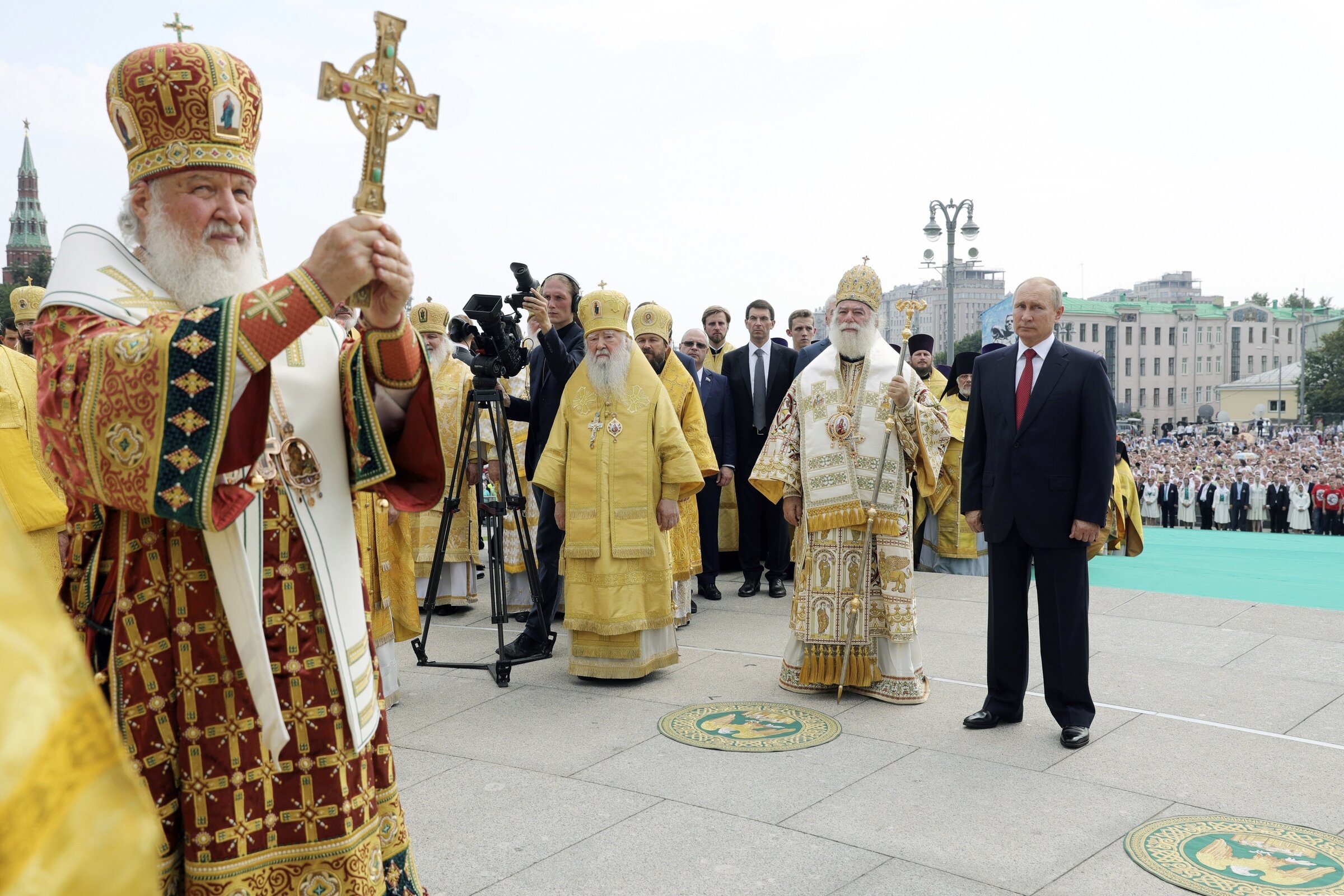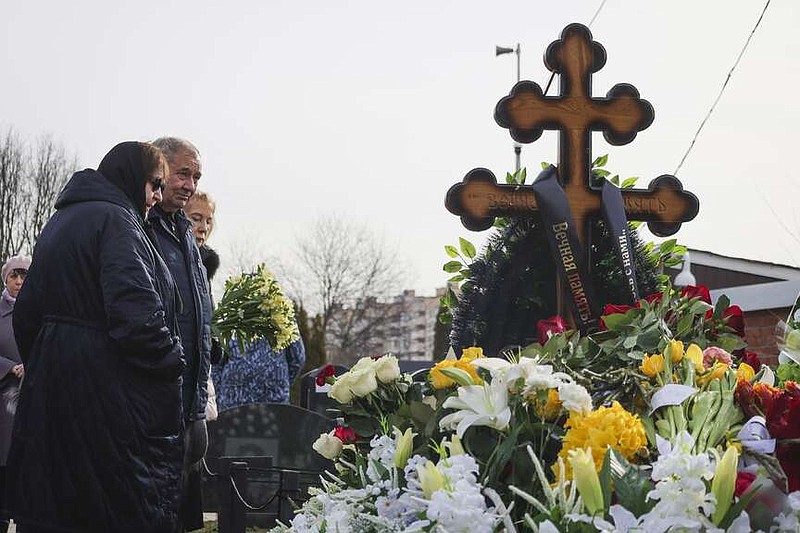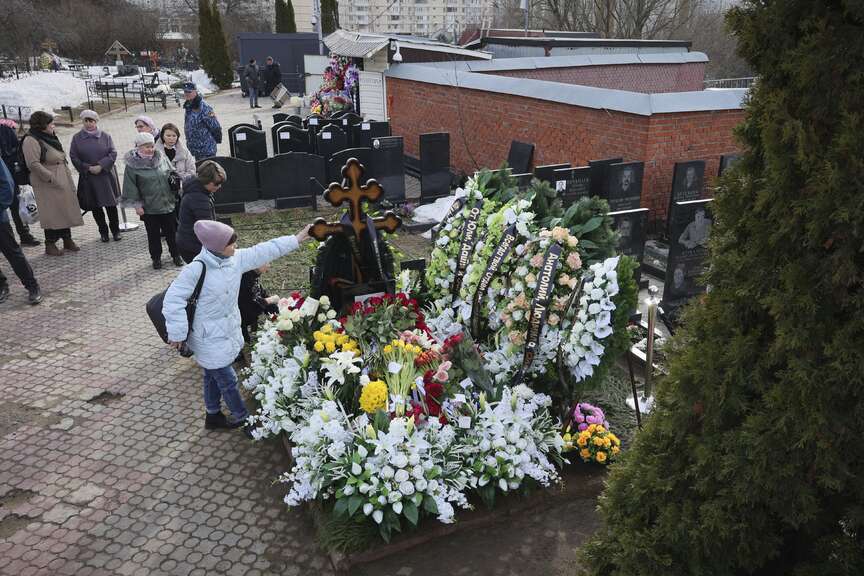The patriarch of the Russian Orthodox Church has suspended a priest who participated in services for the late opposition leader Alexei Navalny.
Dmitry Safronov took part in Navalny's funeral as well as presiding at the commemoration on March 26, the 40th day after his death -- an important Russian Orthodox tradition.
An order published Tuesday on the Moscow Diocese website demoted Safronov from his position as priest to that of a psalm-reader and stripped him of the right to give blessings or wear a cassock for three years. He also was transferred to another church in the capital.
No reason was given for the decision, which was signed by Patriarch Kirill, a key ally of Russian President Vladimir Putin.
Navalny's widow, Yulia, said on the social platform X (formerly known as Twitter) on Wednesday that she was "very grateful" to Safronov for coming to her late husband's grave and urged supporters to help him and his family by donating money.
Navalny, 47, died Feb. 16 in the remote Arctic penal colony where he had been serving a 19-year sentence on extremism charges that were widely seen as politically motivated. The cause of death remains unexplained, although the politician's allies have blamed the Kremlin for it.
Russian authorities initially refused to release Navalny's body, citing the need for further investigations. Safronov was among the clergymen who signed a public letter calling for the remains to be returned to his family.
Safronov had also refused to read a prayer for victory in the Russian war against Ukraine, which the Moscow Eparchy has been demanding of all churches under its jurisdiction since the autumn of 2022.
Last month, Russian Orthodox leaders declared that the "special military operation" -- Putin's euphemism for his war on Ukraine -- is a "Holy War" which is "protecting the world from the onslaught of globalism and the victory of the West, which has fallen into Satanism."
During his more than two decades in power, Putin has boosted the standing of the Russian Orthodox Church, increasing its prestige, wealth and power after decades of oppression or indifference under Soviet leaders.
In turn, its leaders, like Kirill, have supported his initiatives. The church has thrown its weight behind the war in Ukraine and it has been commonplace to see its clergymen blessing troops and equipment for the campaign.
At the same time, multiple priests who have refused to toe the official line have faced pressure from church authorities.
 In this 2018 file photo, Russian Orthodox Church Patriarch Kirill (left) leads a religious service as Russian President Vladimir Putin (right) and Eastern Orthodox Patriarch of Alexandria and all Africa Theodoros II (second right) attend a ceremony marking the 1,030th anniversary of the adoption of Christianity by Prince Vladimir, the leader of Kievan Rus. The loose federation of Slavic tribes preceded the Russian state. (Sputnik, Kremlin Pool Photo via AP/Mikhail Klimentyev)
In this 2018 file photo, Russian Orthodox Church Patriarch Kirill (left) leads a religious service as Russian President Vladimir Putin (right) and Eastern Orthodox Patriarch of Alexandria and all Africa Theodoros II (second right) attend a ceremony marking the 1,030th anniversary of the adoption of Christianity by Prince Vladimir, the leader of Kievan Rus. The loose federation of Slavic tribes preceded the Russian state. (Sputnik, Kremlin Pool Photo via AP/Mikhail Klimentyev)
